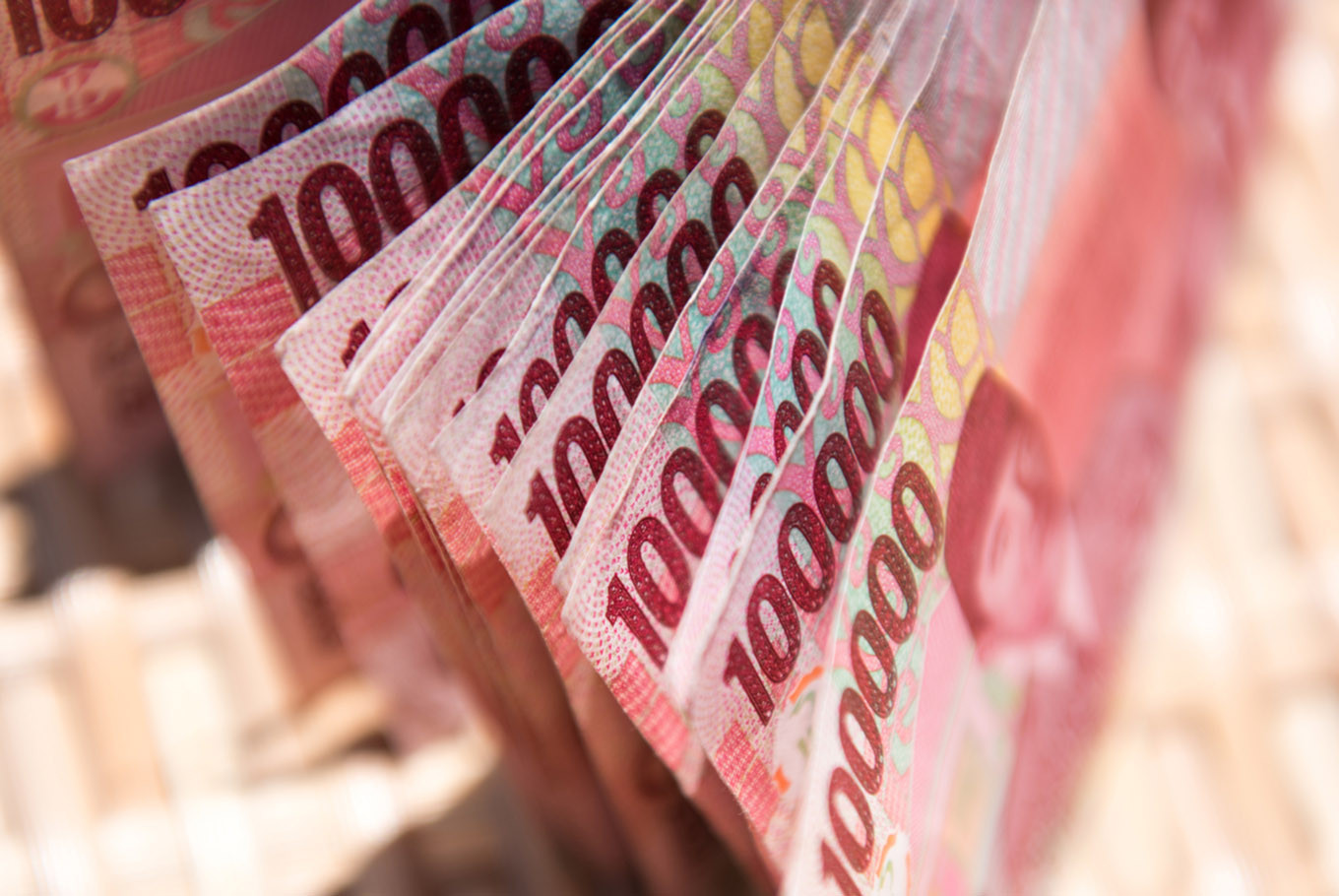Popular Reads
Top Results
Can't find what you're looking for?
View all search resultsPopular Reads
Top Results
Can't find what you're looking for?
View all search resultsGovt to rework $37b stimulus
The new stimulus programs range from a continuation of existing programs such as fund placement in banks, electricity discounts and the Family Hope program, as well as new programs intended to spur economic growth and boost people’s purchasing power, according to Finance Minister Sri Mulyani on Monday.
Change text size
Gift Premium Articles
to Anyone
T
he government is looking to disburse Rp 534.98 trillion (US$37.04 billion) in COVID-19 stimulus funding in the remaining months of the year, through proposed new programs and streamlined bureaucracy in an attempt to rescue the pandemic-hit economy.
The new stimulus programs range from a continuation of existing programs such as fund placement in banks, electricity discounts and the Family Hope program, as well as new programs intended to spur economic growth and boost people’s purchasing power, according to Finance Minister Sri Mulyani on Monday.
The new proposed stimulus programs, totaling Rp 126.2 trillion, will be financed from reserves and budget reallocations from the government’s COVID-19 stimulus package of Rp 695.2 trillion.
“We will redesign the stimulus to maximize its impact and to allow the economy to recover faster, while also simplifying the bureaucratic process,” she told reporters on Monday.
As of Aug. 6, the government had only spent Rp 151.25 trillion of the stimulus budget, five months after the first outbreak in March, Finance Ministry data show. Sri Mulyani attributed the slow spending to complicated bureaucracy and a lack of citizens’ data, among other reasons.
Indonesia’s economy contracted 5.32 percent in the second quarter this year, the first decline in two decades, as all components of economic activities tumbled amid large-scale social restrictions (PSBB) to curb the spread of the coronavirus.
However, government spending, which is expected to anchor the economy and boost people's purchasing power amid cooling private-sector activity, nosedived 6.9 percent during the period.
The government expects the economy to either shrink by 0.4 percent or grow by 1 percent this year.
The minister stated that several stimulus programs that had been previously announced may not be fully absorbed this year, adding that the remaining funds could be used to finance new programs or could be used for next year’s spending needs.
For the healthcare sector, the government is considering the allocation of Rp 23.3 trillion for programs such as cash incentives for health workers until the end of the year, as well as speedier procurement of medical equipment.
Meanwhile, it will also disburse Rp 2.4 million for 12 million micro, small and medium enterprises, while also paying Rp 28.8 trillion to civil servants and pensioners as a 13th-month salary bonus starting this week, Sri Mulyani said, adding that the cash incentives would boost purchasing power and the economy.
“We are preparing these additional measures so that more people can receive the government’s aid,” she said, adding that the government would also inject funds for state-owned enterprises this month to support the economy.
Consumer spending, which accounts for more than half of GDP, fell 5.51 percent year-on-year in the second quarter this year.
The government will provide wage subsidies to 15.7 million workers to spur consumer spending, planning to provide Rp 600,000 for every worker with a monthly salary of less than Rp 5 million for four months starting next month.
“We’ve launched this wage subsidy program for workers who are not laid-off but are furloughed or face pay cuts because their employers are facing difficulties,” Budi Gunadi Sadikin, the head of the national economic recovery task force, said in a virtual press conference on Monday.
Although the second quarter contraction raises the risk of an economic recession in the third quarter, the stimulus programs may help maintain people’s purchasing power and save businesses, said Center of Reform on Economics (CORE) Indonesia research director Piter Abdullah.
“The key to economic recovery is to handle the pandemic while also boosting government spending,” Piter told The Jakarta Post. “If the government can do those things then they will succeed in preparing for an economic recovery.”
“We believe that government spending will pick up pace in the second half of the year but as this component only makes up 9 percent of GDP, it will do little to fully mitigate the anticipated recession,” analysts at Fitch Solutions said in a note last week.
Meanwhile, credit rating agency Fitch Ratings announced on Monday that it affirmed Indonesia’s long-term foreign currency issuer default rating at “BBB with a stable outlook”.
The ratings agency praised a favorable medium-term growth outlook and a low government debt to GDP ratio against a high dependence on external financing but also noted low state revenue and lagging structural indicators.
“The government has responded swiftly to the crisis with a broad range of relief measures to support households and companies, including small and medium-sized enterprises,” Fitch Ratings said in a statement on Monday.
- Dzulfiqar Fathur Rahman contributed to the story










